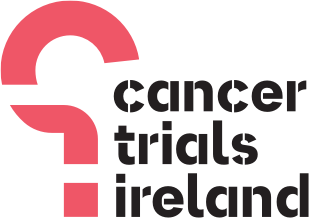| Name | No. | For Patients with | Purpose |
|---|---|---|---|
| ProvIDHe Trial | 24-50 | Adult (18 years and older) patients with previously treated, locally advanced, or metastatic cholangiocarcinoma (CCA). |
Ivosidenib is approved in the United States and in EU for the treatment of advanced or metastatic CCA; this study is being conducted to conslidate the data related to the safety, efficacy, and impact on quality of life for patients. |
DSSG Group: Gastrointestinal
CARDIA Trial
| Name | No. | For Patients with | Purpose |
|---|---|---|---|
| CARDIA Trial | 24-16 | Patients with histologically proven adenocarcinoma of the GEJ type II |
The objective of this study is to compare transthoracic esophagectomy versus transhiatal extended gastrectomy inpatients in patients with adenocarcinoma of the gastroesophageal junction (GEJ) type II |
SARONG-II Trial
| Name | No. | For Patients with | Purpose |
|---|---|---|---|
| SARONG-II Trial | CTRIAL-IE 24-01 | Participants must be 18 years or older and have undergone surgical resection for curatively intended treatment of oesophageal or gastric cancer (adenocarcinoma and squamous cell carcinoma) with or without neoadjuvant/adjuvant chemotherapy or radiotherapy or immunotherapy (or in combination). Additional criteria apply. |
The SARONG-II study will investigate if regular radiological scans can lead to earlier detection of a cancer returning, at a stage when it may be more readily treatable. This means that participants who agree to take part will be allocated by chance to either more intensive imaging surveillance (including regular radiological scans and a camera test (endoscopy) or clinical follow-up. |
FEED Trial
| Name | No. | For Patients with | Purpose |
|---|---|---|---|
| FEED Trial | 20-27 | Participants must be 18 years or older and have been diagnosed with pancreatic cancer and been referred for chemotherapy at SVUH before potentially having surgery. Additional criteria applies. |
Participants will participate in a 12 week multi-modal nutritional care package while undergoing standard chemotherapy for pancreatic cancer at SVUH. The care package consists of diet, supplements, daily step target and dietitian and physiotherapist appointments. Participants will be followed up for 6 months. |
NEEDS
| Name | No. | For Patients with | Purpose |
|---|---|---|---|
| NEEDS | 20-36 | Advanced squamous cell carcinoma (SCC) of the oesophagus |
The goal of the NEEDS study is to compare outcomes after neoadjuvant chemoradiotherapy (chemotherapy before surgery) plus esophagectomy to outcomes after definitive chemoradiotherapy (treatment is chosen as the main type of treatment and other treatment options e.g surgery are only used afterwards if they are required) with surveillance and salvage esophagectomy as needed in patients with resectable locally advanced squamous cell carcinoma (SCC) of the esophagus, with the aim to provide generalizeable guidance for future clinical practice |
DP-IMRT Pancreas
| Name | No. | For Patients with | Purpose |
|---|---|---|---|
| DP-IMRT Pancreas | 17-12 | resectable or borderline resectable (per the National Comprehensive Cancer Network (NCCN) criteria) pancreatic adenocarcinoma. |
to determine the maximum tolerated dose (MTD) defined by the number of radiotherapy-related ≥ Grade 3 acute toxicities assessed up to 4 weeks post RT. Once the MTD is established, patients will continue to be recruited at that dose level up to a total of 49 patients. |
Mountaineer-03
| Name | No. | For Patients with | Purpose |
|---|---|---|---|
| Mountaineer-03 | 23-25 | Patients with HER2 positive colorectal cancer that has spread through the body (metastatic) and/or cannot be removed with surgery (unresectable). |
The main objective of the study is to find out if tucatinib with other cancer drugs works better than standard of care to treat participants with HER2 positive colorectal cancer. This study will also test what side effects happen when participants take this combination of drugs. |
PaTcH Trial
| Name | No. | For Patients with | Purpose |
|---|---|---|---|
| PaTcH Trial | 20-27 | Metastatic refractory pancreatic cancer treated with trametinib and hydroxychloroquine |
The goal of this study is to examine if Trametinib and Hydroxychloroquine will improve results for patients with advanced pancreatic cancer compared to standard chemotherapy. |
HERIZON-GEA-01 (ZWI-ZW25-301) Zymeworks
| Name | No. | For Patients with | Purpose |
|---|---|---|---|
| HERIZON-GEA-01 (ZWI-ZW25-301) Zymeworks | 21-35 | The patients in this study will have advanced human epidermal growth factor 2 (HER2)-positive stomach and esophageal cancers that are no longer treatable with surgery (unresectable) or chemoradiation, and/or have grown or spread to other parts of the body (metastatic) |
This study is being done to find out if zanidatamab, when given with chemotherapy plus or minus tislelizumab, is safe and works better than trastuzumab given with chemotherapy. |


